As Israeli settlements grow throughout the West Bank, incidents involving settlers are at an all-time high. With Israeli forces failing to prevent violence and sometimes enabling it, Palestinians are more exposed to brutality than ever. In areas of heavy settler presence, stories of altercations are ubiquitous, with every family knowing at least one person harassed, attacked, or arrested in connection with a settler encounter.
Yasser Abu Markhiyeh’s daughter Jana was two and a half years old when stones struck her face and legs. Jana was sitting on her father’s lap while he sipped his coffee on the terrace of their home in the West Bank city of Hebron. Then, Israeli settlers from nearby houses began to hurl stones towards the 51–year–old Palestinian man’s house from the street.
“The entrance used to give a clear line of sight to the outside before the Israeli soldiers set up a protective wall, so I barely realised that the settlers were there,” he says, alluding to a wall set up to cut off his house from a street often used by settlers.
MSF psychologists help Yasser and Jana cope with the episode and the recurring attacks that they face in their home due to its proximity to settler houses. Now aged seven, Jana has strabismus (a condition in which both eyes do not look at the same place at the same time) that required several rounds of surgery and will require at least one more in coming years.
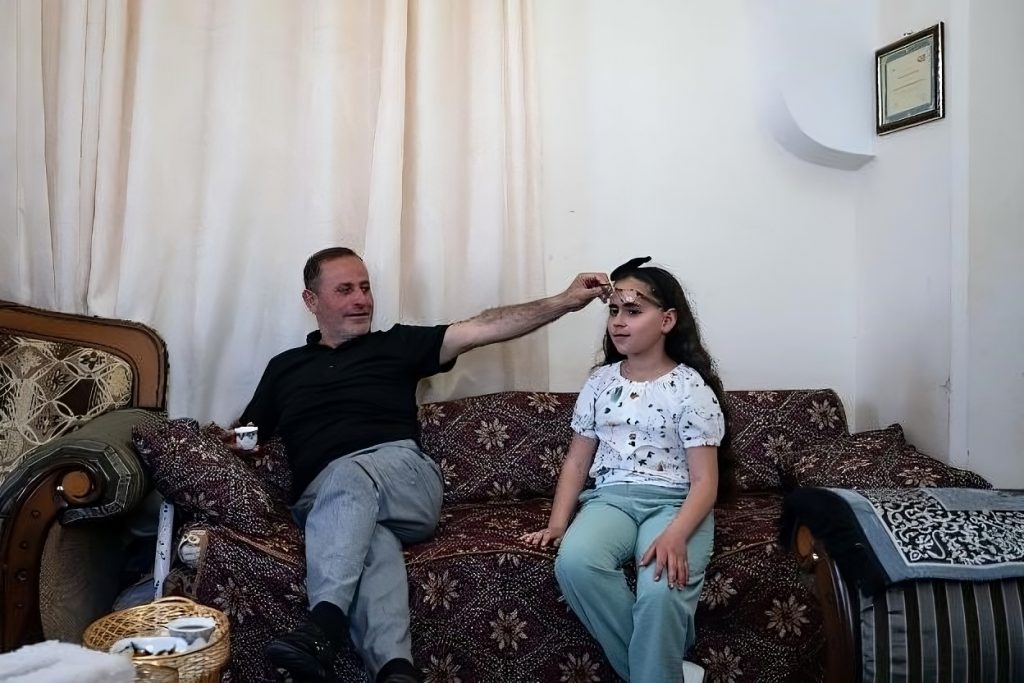
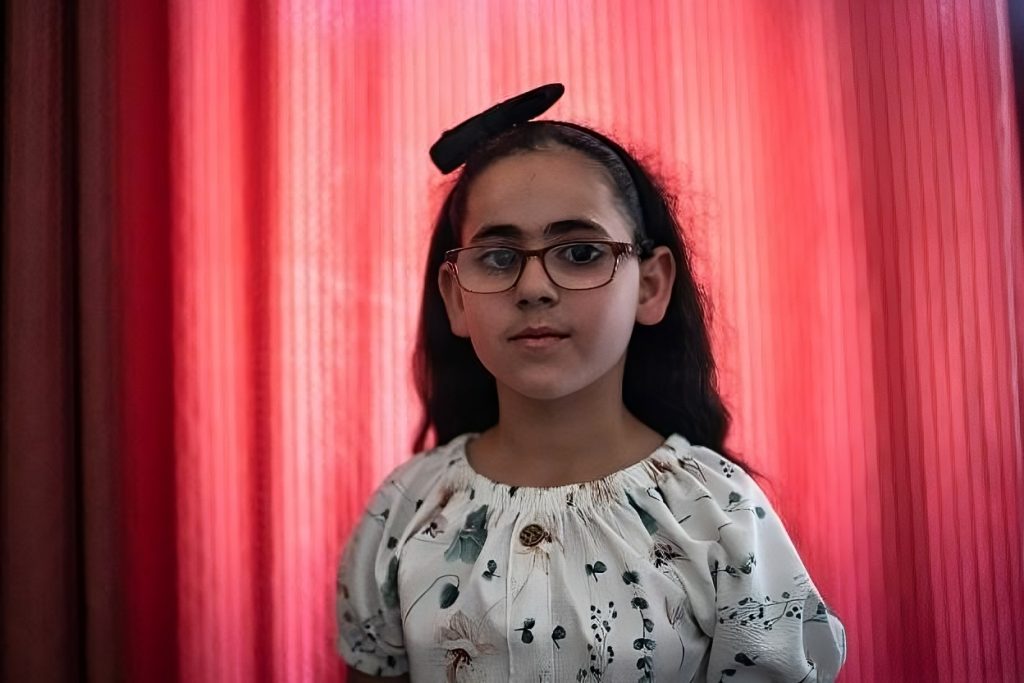
Yasser and Jana’s neighborhood of Tel Rumeida is a particularly settler-heavy area inside a part of Hebron known as H2, an enclave under Israeli authority, and home to approximately 700 settlers who live in close proximity to Palestinian residents.
Though previously home to a small Jewish population that predated the State of Israel, settlement activity in Hebron has been particularly intense since the beginning of Israel’s occupation of the West Bank in 1967. A 1997 agreement granted the Palestinian Authority control of 80 per cent of the city but maintained 20 per cent of H2 under Israeli occupation in order to expand and protect established settlement compounds.
Shuhada street, in the nearby Old City, reflects the impact of the settlements on H2. Once a vibrant commercial hub, it slowly morphed into a ghost town as checkpoints were established, entry permits to enter the area became mandatory for Palestinians, and shops were closed one by one. Yasser’s father’s ice cream shop is one of those, and now sits empty with all its expensive equipment unused after Israeli forces sealed it shut and forbade him to return.
H2 is symptomatic of a trend affecting the entire West Bank: as the number of settlers in that area rose from 183,000 in 1999 to 465,000 today (excluding 220,000 in East Jerusalem), so does the number of Israeli soldiers assigned for their protection, as well as the number of restrictions their presence implies for Palestinians’ day-to-day lives.
This dual settler and military presence in turn creates incidents, often violent, in which Palestinians invariably lose, with consequences ranging from property damage to death.
Just in April 2023, settlers attacked shepherds with stones near Ramallah, cut down 50 olive trees near Nablus, and chased two Palestinian boys grazing a herd in the South Hebron Hills, among other incidents.
Between checkpoints, verbal and physical harassment, imprisonment, property damage and movement restrictions, Palestinians face violence not just from settlers, but also from Israeli forces, she says. Together, these components create mental health disturbances that lead to “a lot of Post Traumatic Stress Disorder cases, general anxiety, depression, kids who strongly fear going to school, and much more.”
Mariam, 56, was once targeted by settlers who threw stones at her and another MSF staff member as they were waiting outside a patient’s door in H2. She recalls feeling helpless and frustrated for her patients.
Israeli forces enable settlers by siding with them during altercations regardless of who instigated them. Mariam recalls that once, after a group of settlers removed the plate from an MSF car in Hebron, she argued with them to get the plate back. A soldier standing nearby pointed his gun at her and the team and they had to leave.
“The problem here is that you’ll find settlers and soldiers at the same time, and the soldiers protect the settlers,” she says.
In Yasser’s case, reporting the attack on his daughter to the Israeli police led nowhere. He still regularly runs into the men who threw the rocks around H2. “I can recognise them even though they were young at the time.”
Some of them serve in the military while others work at Megan David Adom (Israel’s national ambulance service). He once confronted the now medic about his daughter, who dismissed the incident as a rash move by a young man.
Yasser, a former cab driver, used to park his car outside his house but had to start parking it on the street after a checkpoint was established near his house. Yasser remembers the early days of settler presence when the street was open. Then a few bags of sand and a wooden traffic barricade manned by soldiers appeared. Now, a large metal gate restricts access to the neighborhood for cars, while pedestrians must enter via a turnstile.
Today, Jana and her sisters must cross the checkpoint and the soldiers that guard it every day to get to school, and the family is effectively isolated from their community. Friends and relatives fear visiting the neighborhood due to settler and military presence and the violence that could result from an encounter with them, effectively adding the burden of social isolation to that of settler and army violence.
Rage and rampage in the northern West Bank
In the area surrounding the northern West Bank city of Nablus, settlements illegal under international law were established on hilltops in the rural areas near the city. There too, incidents reached record levels in 2022, while 2023 has brought one of the most dramatic settler incursions yet. In the nearby town of Huwara, hundreds of settlers, some carrying knives and guns, went on a rampage in February 2023 after a Palestinian gunman fatally shot two settlers. The raid led to indiscriminate violence that left one civilian dead, over one hundred people injured and many material damages to Palestinian property, ranging from broken windows to burnt cars.
Hussam Odeh is from a newer generation and doesn’t remember a time without an established settler presence nearby. He lives just off Huwara’s main street, where traffic increased significantly in recent months after Israeli forces used large cement blocks to better control accesses to the town.
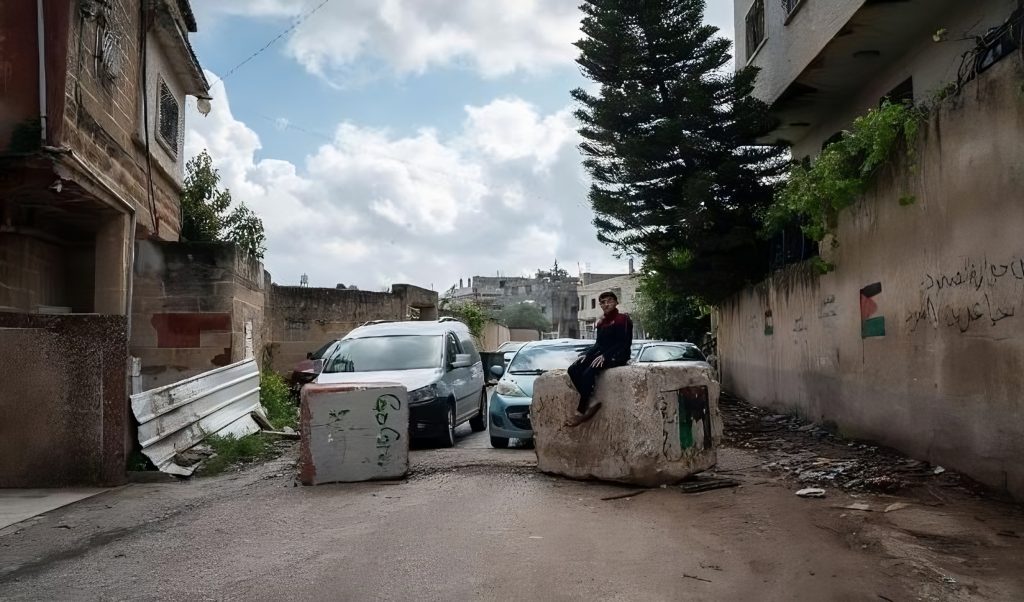
Although just 15 years of age, Hussam is keenly aware of the power dynamics in the West Bank. From the window of his apartment he can see soldiers on the roof of the building across the street, who use it as a vantage point over the town. “We know them, and we can differentiate them,” he tells MSF staff, who visit his building to provide mental health support to his aunt and his younger cousins.
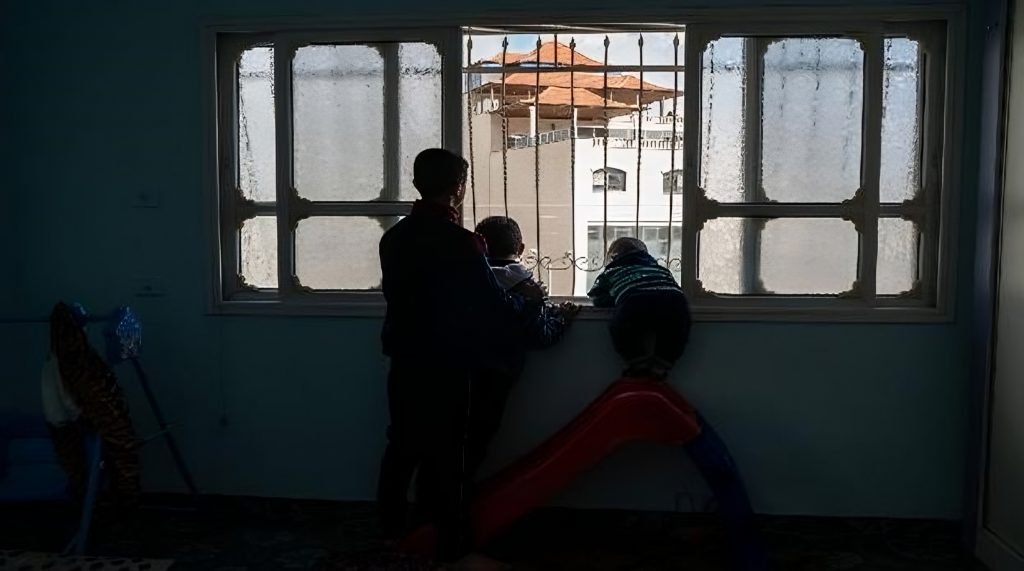
Hussam’s high school, Huwara Secondary Boys School, is particularly close to a settlement. In October 2022, as Hussam and his friends were playing soccer in the courtyard before first period, he began to hear shouting and screaming. “We were told that settlers were attacking the school. They had guns and Molotov cocktails,” he recalls. The army eventually dispersed the settlers and sent everybody home, but two students were sent to hospital for cuts from stone throws.
Hussam plays right defender in the Nablus soccer team and used to cover the 10 kilometres to training by public transport. With the increase in tensions, neither he nor his teammates from Huwara have attended practice in months out of fear of checkpoint crossings gone wrong. “God willing, I will be back to play soccer again,” he says.
Mustafa Mlikat, a Bedouin man who recently moved to the nearby village of Douma from the Jericho area to escape settler harassment, also deplores the increased violence from settlers. Though never pleasant, things were not as bad in the past, the 50–year–old herder says. He remembers when settlers from rural areas would give him or other Bedouins rides on their way into town. Then, settlers built a house next to his.
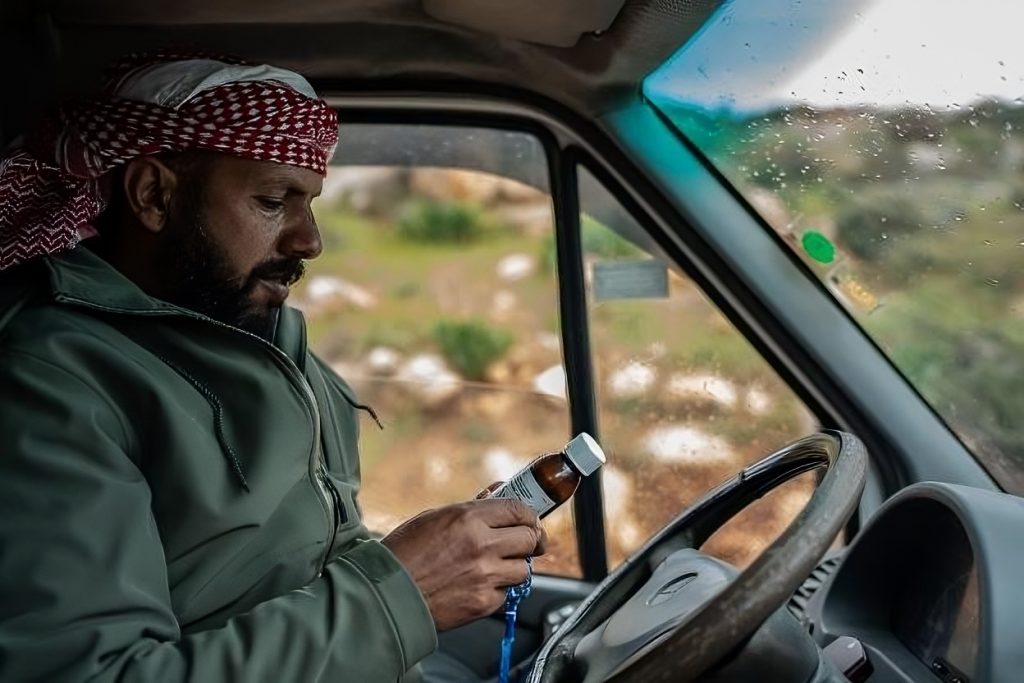
Members of his community in Muarrajat began to sell their cattle and leave, and so did he. With a special contraption mounted on the back of his pickup, he brought his herd of 50 sheep and all his belongings over a few trips and moved to a piece of land he chose specifically because of its distance from settlements. The Muarrajat story is not an isolated case. On 22 May 2023, an entire community of herders near Ramallah, Ein Samiya, chose to relocate its 178 members, due to home demolitions from Israeli forces, and loss of grazing grounds to settlements.
Bedouin communities are particularly vulnerable to settler violence because as herders their presence stands in the way of settlements in rural areas coveted by settler farmers. “They want all the areas where the Bedouins are to be for the settlers. All the Bedouins are being targeted,” he says.
Yet after he built a house in Douma, Israeli soldiers destroyed it in February 2023, citing lack of building permits as a reason.
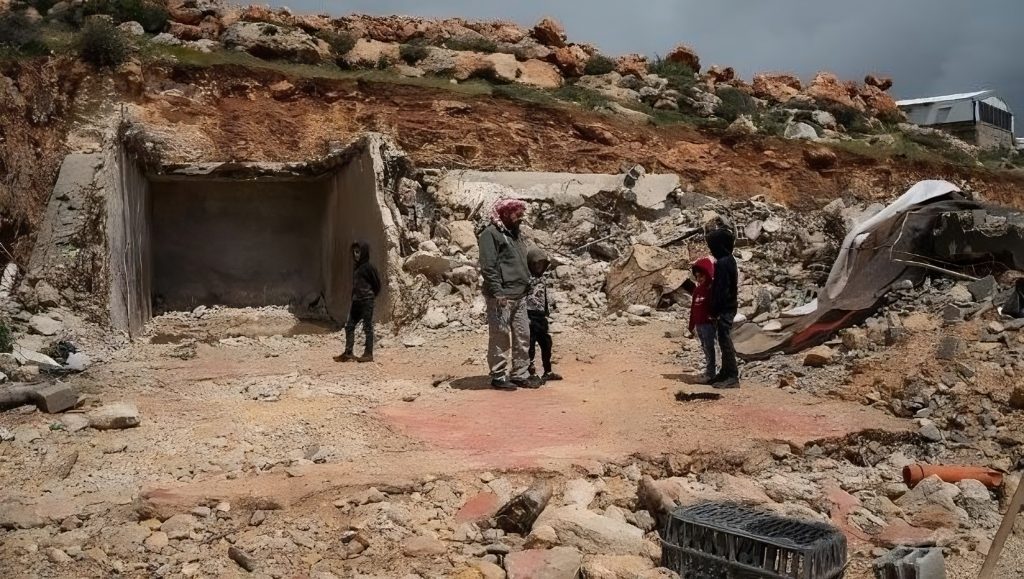
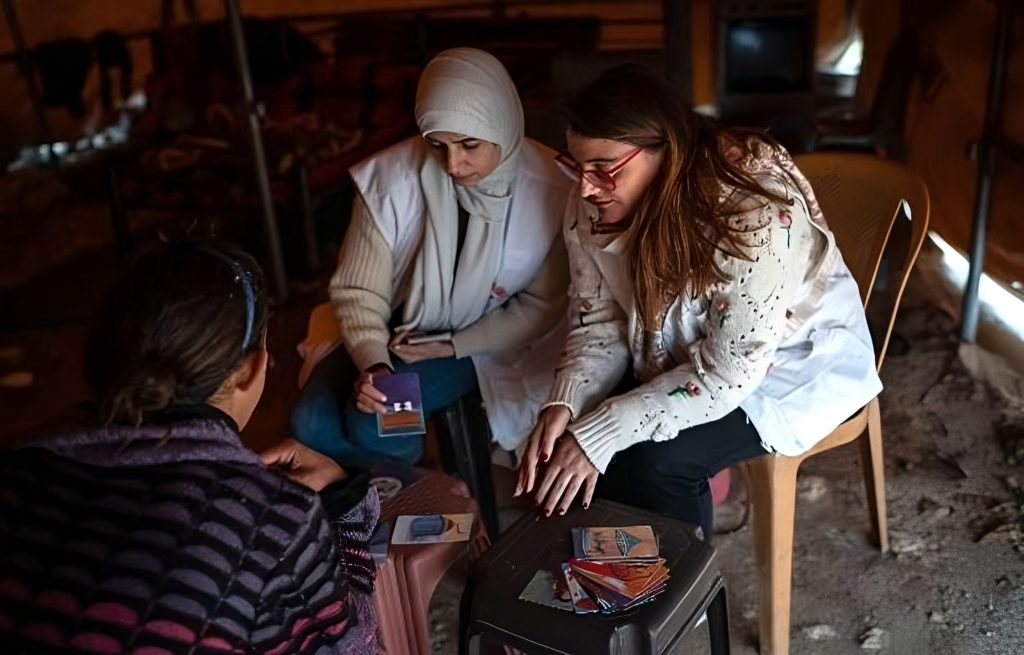
Pressed between ever expanding settlements whose occupants behave unpredictably, Youssef*, a Palestinian from Nablus, feels more comfortable facing soldiers than settlers. “We feel the Israeli army follows some rules, at least the majority of it,” he explains. “Settlers are not bound by such rules, and if they become angry, who knows what they might do.”
At 50, he has seen settlements expand and make his job as a driver harder as the number of roads accessible to Palestinians shrinks. He laments the status quo that prevails in the West Bank since the Oslo Accords of 1993.
*Name changed to protect anonymity
Médecins Sans Frontières/Doctors Without Borders (MSF) has been present in the West Bank since 1988. In Nablus, the organisation runs a mental health focused project with outreach in Qalqilya and Tubas. MSF also runs a mental health program in Hebron city, offers medical services in H2, and basic healthcare in nearby Masafer Yatta via mobile clinics. A recently opened project in Jenin provides training for mass casualty plans, emergency response and patient triage.












